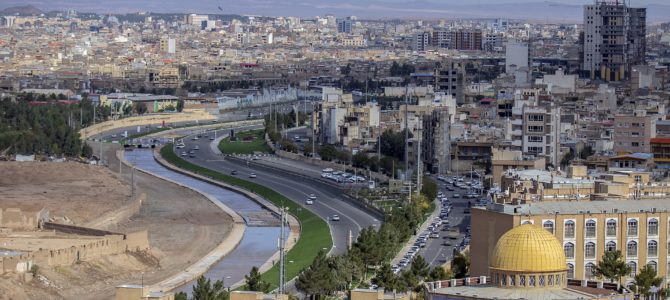
Despite commenting endlessly on the death of Islamic Revolution Guard Corps leader Qassem Soleimani, offering everything short of condolences for the infamous terrorist, Democrats have remained startingly mum on the recent street demonstrations in Iran. Since I wrote this past weekend describing how not one 2020 Democratic contender had commented on the events unfolding in Iran, only two 2020 Democratic contenders – former Vice President Joe Biden and Sen. Amy Klobuchar (D-Minn.) – have since risen to the occasion to offer weak support of the protesters risking their lives to confront their repressive rulers.
Trump’s reckless policies have needlessly endangered our interests in the Middle East. But none of us should be under any illusions about the Iranian regime, and the Iranian people — like all people everywhere — have the right to peaceful protest. The world should support them.
— Joe Biden (@JoeBiden) January 12, 2020
People should have the right to peacefully protest in any country, including Iran.
— Amy Klobuchar (@amyklobuchar) January 13, 2020
Democrats’ alarmingly bizarre response to Soleimani’s death, combined with tepid, virtually non-existent commentary on the recent protests in Iran, in which thousands have poured into the street in response to the regime’s downing of Ukrainian Flight 752, serves as a stark reminder of what is in store should a Democrat win the presidency in 2020.
Indeed, this stunningly weak response indicates that the American left largely hasn’t backed away from the utterly fantastical notion that appeasing Iranian terrorists is a surefire way to enhance stability in the region. In other words, the Iran Deal, or some ugly rendition of it, may be in the cards for the United States should a Democrat become president in 2020.
Indeed, it seems the latest lackluster response from various Democrats to the events of the past month is just another chapter in the sordid tale of the left’s attempts to lay the groundwork for a future revival of the deal, formally called the Joint Comprehensive Plan of Action (JCPOA). Unsurprisingly, there are many chapters to this politically unfortunate story, revealing that the equivocating on Soleimani and the later downplaying of Iranian protests may be wholly deliberate.
Indeed, Democrats have a long history of exercising a peculiar restraint in punishing Iran. Last March, I wrote at length about the State Department’s overblown projections about the impact harsher sanctions on Iran would have on the global oil market. At the time, the State Department suspiciously was parroting numbers that were completely at odds with what other U.S. officials had expressed.
The narrative being put forth by some in Washington — that harsher sanctions on Iranian oil exports would “devastate” global energy markets — seemed all too convenient, given that at the time there were murmurs that a faction of national security “experts” was entertaining the possibility of re-entry into the Iran Deal should a Democrat win the presidency in 2020. Those toying with such an idea likely sought clemency with Iranian sanctions, fearing that too much strain on the Tehran would make re-entry into the Iran Deal nearly impossible. As this one article advocating for Democratic re-entry notes, American resurrection of the JCPOA—and Iran’s acceptance of it—would be perceived in the Muslim world as Tehran “capitulating” to the United States if the sanctions were too extreme.
Therefore, to mitigate the perception of surrender, many on the left have been continuously clamoring for lighter punishment of the mullahs, and now remain silent as the regime guns down thousands of protesters. Democrats’ behavior isn’t an aberration, nor is it unusual. It’s likely part of the playbook to ensuring that should a Democrat win in 2020, the pathway is clear for bringing Tehran back to the table. Just as the Democrats ignored Iranian protesters in 2010 to allow the JCPOA to come into existence, they’re likely ignoring them once again to resurrect it.
This reasoning also likely explains Democrats’ bizarrely soft response to Soleimani’s death, for as Lee Smith writes, Soleimani was the “centerpiece of the JCPOA.” Not only did President Obama offer praise of the now-late leader, but one provision of the JCPOA involved removing Soleimani from the U.N. Sanctions list entirely in 2015. Indeed, former Bush administration official Mike Doran announced on Twitter that there was correspondence between Obama and Soleimani, the tenor of which likely amounted to “court[ing]” more than “deter[rence].”
President Obama saw the leader of Iran’s most prestigious (and violent) military unit capable of “re-balancing” the Middle East, a euphemistic term for what would become a 180 pivot from our traditional allies in favor of aligning ourselves with the world’s largest state sponsor of terror. Thus, to discuss Soleimani’s heinous crimes, as justifying his death demands, would amount to delegitimizing the Obama foreign policy project. Democrats aren’t prepared to do so, particularly if they plan to resurrect it.
Indeed, while Democrats are ready to talk “tough” on Russian bot farms, they’re deeply uncomfortable discussing the atrocities committed by terrorist mastermind Soleimani or the regime he served. While the Trump administration ponders ways to contain and kneecap Soleimani’s successor, Democrats are devising ways to avoid upsetting him, for in all likelihood, they’ve saved him a seat at the table.









